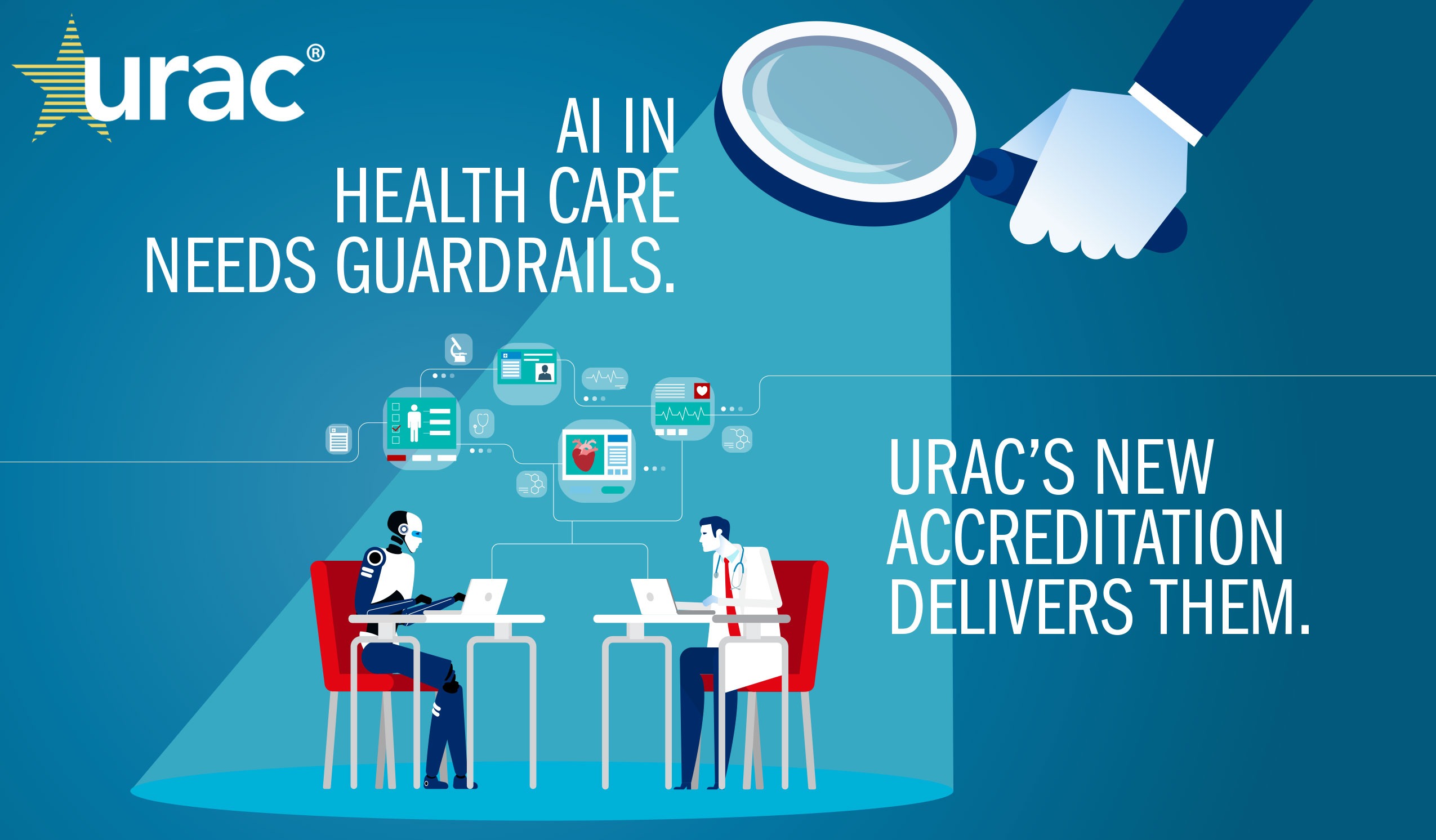
Artificial intelligence is rapidly transforming health care, offering opportunities to enhance patient care, streamline operations and reduce clinician burnout. But as highlighted in a recent article by Becker’s Hospital Review, health care leaders stress the need for ethical and accountable implementation.
In the article, executives from organizations such as Sutter Health, Stanford Health Care and AdventHealth discuss both the promise and pitfalls of AI. They call for stronger governance, transparency and oversight to ensure AI tools benefit patients without introducing new risks.
URAC’s upcoming Health Care AI Accreditation, launching in Q3 2025, directly addresses these concerns. The program offers a comprehensive, independent framework to help technology developers and health care providers implement AI in ways that are safe, ethical and equitable.
“The urgency around AI oversight in health care is real,” said Dr. Shawn Griffin, URAC President and CEO. “Tools are already being used at the bedside, and we need guardrails now, not two years from now.”
The accreditation will focus on:
- Data privacy and patient consent
- Bias mitigation and health equity
- Clinical oversight and provider training
- System governance and interoperability
More than 25 organizations contributed to URAC’s Health Care AI Advisory Committee, including Verily, Northwell Health, Aidoc, Pfizer and MD Anderson Cancer Center.
- To learn more about URAC’s Health Care AI Accreditation and how it supports safe, responsible AI use, visit our news page.
- Read the full Becker’s article: Has AI been good for health care?



